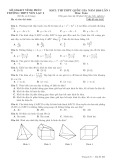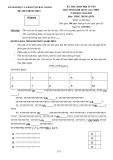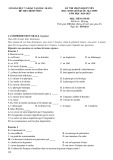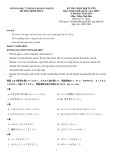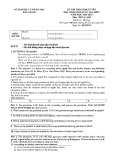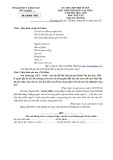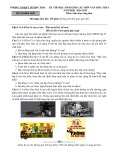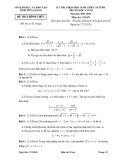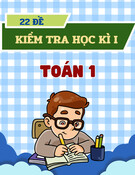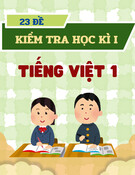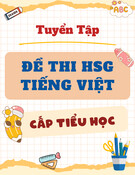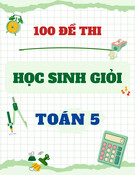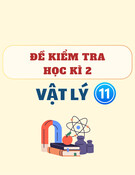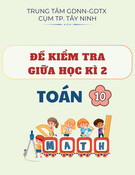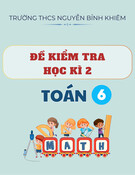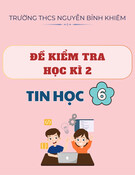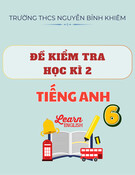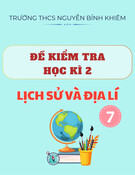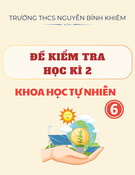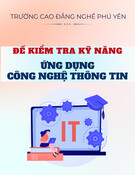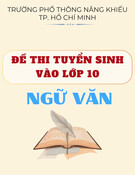
Trang 1/6
SỞ GIÁO DỤC VÀ ĐÀO TẠO
SÓC TRĂNG
TRƯỜNG THPT PHAN VĂN HÙNG
KỲ THI CHỌN HỌC SINH GIỎI THCS CẤP TRƯỜNG
Năm học: 2023-2024
ĐỀ CHÍNH THỨC
Môn: Tiếng Anh
(Thời gian làm bài 150 phút, không kể thời gian phát đề)
Đề thi này có 06 trang
A. LISTENING (2.0 points)
I. Part 1: (1.0 point)
Listen and check your understanding by choosing TRUE or FALSE for each statement. You
will hear the recording twice.
1. There are two customers eating together.
2. The two customers order the same starter.
3. Both customers order the Thai chicken for their main course.
4. The customers order soft drinks.
5. Both customers order a dessert.
II. Part 2 (1.0 point)
Complete the notes below. Write NO MORE THAN TWO WORDS OR NUMBERS for each
answer. You will hear the recording twice.
Questions: transport from Bays water
Express train leaves at (1) …………………….
Nearest station is (2) …………………….
Number 706 bus goes to (3) …………………….
Number (4) ……………………. bus goes to station
Earlier bus leaves at (5) …………………….
B. VOCABULARY AND GRAMMAR (7.0 points)
I. Multiple Choice: (4.0 points) Circle the letter next to the word or phrase which best
completes each sentence
1. They named their daughter ....................their favourite movie star.
A. of B. for C. after D. on
2. I won't speak to her ........................ she apologizes.
A. in case B. in spite of C. so that D. unless
3. My mother used to ........................ research in this library when she was a student.
A. make B. do C. doing D. making






